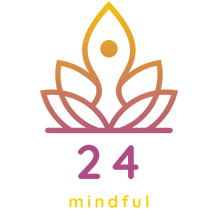In a world where uncertainty often seems the only certainty, the ancient philosophy of Stoicism emerges as a beacon of resilience and wisdom. Rooted in the teachings of thinkers like Zeno, Seneca, and Epictetus, Stoicism offers timeless insights that continue to resonate with individuals seeking a steadfast approach to life’s tumultuous journey.
The Core of Stoic Philosophy
At the heart of Stoicism lies the art of discernment: understanding what is within our control and what falls beyond it. This principle is more than an intellectual exercise; it’s a practical guide for living. Stoics believe that while we can’t control external events, we can control our actions, responses, and attitudes. This shift in focus from external happenings to internal responses is empowering. It liberates us from the frustration of trying to control the uncontrollable and directs our energy towards productive, positive action.
Navigating Life’s Unpredictability
Life is unpredictable, and its challenges can often seem overwhelming. Stoicism equips us with tools to navigate this unpredictability with composure and wisdom. It teaches us to embrace change and adversity, not with resignation, but with an understanding that challenges are an integral part of the human experience. By maintaining a calm demeanor in the face of life’s storms, we can make decisions with clarity and purpose.
Embracing Challenges as Opportunities
One of the most profound teachings of Stoicism is viewing life’s challenges as opportunities for growth. This perspective transforms our approach to difficult situations. Instead of viewing obstacles as impediments to our happiness or success, Stoicism encourages us to see them as chances to practice virtues like patience, resilience, and fortitude. Every challenge becomes a lesson in character development, a step towards becoming a wiser, more compassionate individual.
Stoicism in Everyday Life
Implementing Stoic principles in daily life might involve pausing before reacting to stressful situations, reflecting on our capacity to handle them, and choosing a response aligned with our core values. It means accepting that setbacks are part of life’s fabric, and it’s our response to these setbacks that defines us. Stoicism teaches that by cultivating an inner citadel of calm and reason, we can remain unswayed by life’s ebbs and flows.
Conclusion
Stoicism is more than a philosophy; it’s a practical toolkit for living a fulfilled and balanced life. Its emphasis on personal responsibility, acceptance of change, and the pursuit of virtue offers a pathway to inner peace and resilience. In an age of constant change and overwhelming choices, the Stoic message of focusing on what we can control, embracing challenges, and valuing growth over comfort, is not just relevant, but essential. Stoicism, with its deep roots in ancient wisdom, continues to provide a compass for navigating the complexities of modern life.
